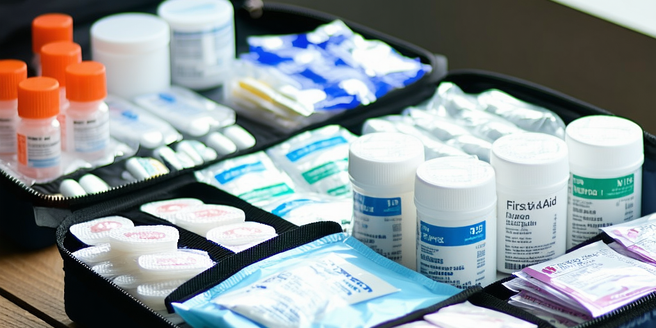
Essentials for Health and Safety
A comprehensive emergency supply checklist must prioritize health and safety essentials. Items such as first aid kits, prescription medications, and necessary medical supplies should be at the top of your list. Additionally, consider including items that promote physical health like multivitamins and energy bars. It’s important to account for personal needs such as eyeglasses or contact lenses, hearing aids, and any specific equipment necessary to assist mobility. Furthermore, have adequate masks and sanitizers on hand to prevent the spread of germs, especially in emergencies like pandemics. Remember to also prepare for mental well-being with stress-relief items like puzzles or a book, which can be crucial during long-term confinements. Ensuring these essentials are well-stocked will significantly impact how effectively you manage during an emergency.
Food and Water Storage Tips
Ensuring you have adequate food and water supplies is fundamental to any emergency plan. Store non-perishable food items like canned goods, dry pasta, and powdered milk, emphasizing nutrition and long shelf lives. Rotate your supplies regularly to maintain freshness and check expiration dates. For water, ensure at least one gallon per person per day, factoring in both drinking and sanitation needs. It’s wise to invest in water purification tools like tablets or filters in case your supply runs low. Store water in a cool, dark place, and ensure containers are clean and free of any leaks. Consider dietary preferences and restrictions for each family member when planning your food storage to maintain morale and health during challenging times.
Important Tools and Equipment
Having the right tools and equipment can make all the difference during an emergency. Flashlights, lanterns, and extra batteries should be readily available, as power outages are common in crises. Invest in multifunctional tools, such as a Swiss army knife which can be invaluable for various tasks like cutting, opening cans, and minor repairs. A reliable manual can opener is essential for accessing canned food when electric options are unavailable. Include duct tape, plastic sheeting, and sturdy rope, useful for temporary repairs or creating makeshift shelters. A portable camping stove and fuel can ensure you’re able to prepare food without electricity. Ensuring these items are easily accessible will enhance your ability to respond effectively to unexpected situations.
Communication and Power Needs
Reliable communication tools and power sources are vital in an emergency. Consider investing in a solar-powered or hand-crank radio to stay informed on weather conditions and local news if the power is out. Mobile phones are essential for communication, so portable chargers or solar chargers should be included in your supply list to maintain battery life. Walkie-talkies can be useful for short-range communication, especially in remote areas where cell service may be unreliable. Having a backup power solution, like a portable generator, can provide electricity to important appliances, ensuring continued communication and access to information. Keeping your communication tools charged and ready can enhance your ability to call for help and stay connected with family or emergency services.
Personal Hygiene and Sanitation
Maintaining personal hygiene is crucial, even during emergencies. Stock up on basic toiletries like soap, toothpaste, and sanitary napkins. Consider including waterless solutions like dry shampoo and wipes, which can be essential when water access is limited. A small portable toilet or sanitation bags can help manage waste discreetly and hygienically, particularly in evacuation scenarios. Proper sanitation helps prevent the spread of illness and maintains morale among your household. Additionally, include disinfectants and proper waste disposal bags for keeping living areas clean. Implementing a hygiene routine during a crisis ensures physical and mental well-being, improving overall resilience in challenging conditions.
Clothing and Shelter Provisions
Appropriate clothing and shelter are vital to your emergency checklist. Ensure you have season-appropriate attire, including warm layers, waterproof jackets, and sturdy footwear for protection against harsh weather conditions. Consider thermal blankets and sleeping bags, essential for warmth during cold nights or if staying outdoors becomes necessary. A tent or tarpaulin can provide temporary shelter and privacy. Remember to pack clothes that account for diverse weather conditions and comfort, as circumstances can change rapidly. Planning for proper shelter and clothing needs in advance helps ensure safety and comfort, allowing your family to focus on navigating through the emergency with resilience.
